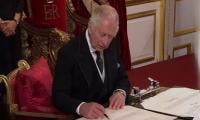Today the customs service is in a log jam with no authority, but it is getting bashed everywhere. The officers have no support staff to raid even a petty vendor, what to say of powerful smugglers.
It is only the nation that suffers not the Federal Board of Revenue (FBR) if one considers the statistics of ice and heroine dealers and victim in schools and colleges. The outcome is frightening. We all have statistics of the country’s literacy, health and poverty rate, but the narcotics consumption rate, source, carriage and storage is not on record, primarily because of a powerless custom department.
There was an effort made between 2016 and 2017 to remedy these pitfalls. New LTU and two corporate RTOs were created in Lahore and Karachi, with corporate zones all over the country. The territorial RTOs were to be separated and rearranged based on their jurisdictions. That package is a way forward and must be deliberated. The key of those efforts are briefly given below.
Philosophically, a hybrid system was in mind, taking care of all ills mentioned above as well as consolidating the gains made, without costing a penny to the state. This had approval of the department after wide consultations in house.
Member ops gave a detailed presentation to the TRC and the finance minister, who was charmed to the extent that ordered its enforcement there and then. Less money and no donor support are required, with readiness for use at any time the government wishes.
The result will be instant and to the satisfaction of everybody, as it targets the ills and treats it one by one. Any experience of new setup will uproot the gains so far made and create new problems and more confusion and further loss of taxes.
1. School of finance, taxation and customs
An important part of these ideas was doing away with Directorates of Training (DOT) and making new schools. The school was to be affiliated with other schools in developed countries with exchange of trainee officers on reciprocal basis. The whole curriculum and syllabus of the DOTS, was mulled to be rewritten, as the one taught there was obsolete and has no relevance to the future knowledge and skill needs of the officers. The subject of ethics and sensitivity to the public grievances, including grooming in public dealing was going to make a difference in the future of the FBR.
A few international institutions had agreed at that time to send their officers to our schools for two weeks and vice versa. Even the custom and the IRS probationers needed to stay in each others’ schools for 15 days to learn cross jurisdictional concepts for broader understanding and coordination in future. In addition to our officers, Pakistan could be a hub of training the officers of other countries, and earn revenue as well.
This was to give the officers international exposure, broader vision, integrity support, and preparation to catch complicated cases, which DOT arguably, has failed to provide. The initiative of the young and talented tax officer was killed by the system in vogue in DOT, as they were called the glorified clerks at the outset, paralysing their initiative in all future discourse.
On the custom side an international school of custom on the same lines and creation of at least two anti-smuggling collectorates across the country with the borders force for supporting these outfits could have yielded salutary results. Paperwork on these concepts in the shape of projects has been completed and available with custom wings of FBR.
2. District taxation officer
District taxation offices were to be established and district taxation officers were to be posted in each district without exception on the pattern of DCOs and DPOs. This idea was not merely sending officers to the district, but it covered all the gaps created by the previous efforts of reforms.
Brief guidelines are as under:
The DTO will have permanent establishment like DPO, DCO as district tax house and tax payer facilitation centre for all taxes and taxpayers, with tehsil as assistant DTO having an assessment authority on all cases except corporate cases in his tehsil.
DTO to have ‘revisional’ authority to reconsider any order passed by TTO, pointed by the aggrieved party, or take a suo moto notice if any wrong has been done to the taxpayer or revenue both, thus facilitating taxpayers within his districts limits rather than to far away stations for redressal of the grievances where RTO’s are located.
DTO to be administratively competent to recruit his staff and transfer it as he deems fit for his setup. He will ensure that each business/sale/income is registered on his record, (massive BTB) and documentation of economy.
DTOs to be financially competent to spend money allocated to him like petrol, vehicle hiring etc. Will have designated vehicle and support staff both technical and non-technical to enforce the writ.
The DTO to be a composite tax authority for federal provincial and even municipal taxes. His office will be common tax house of the district where all taxes including provincial, municipal and vehicle taxes will be collected. The revenue collected will go directly in respective government accounts through a coded challan.
This will be in consonance with ease of doing business as taxpayers will be going to one place for all taxes. It will reduce the support staff load on all three tiers of government. Above all the constitutional right of provincial government to collect their taxes will not be violated. The concept of one authority by federation may be resisted by the provinces and create bad blood which can be avoided by win-win situation of DTO. Investment is needed if not in lump sum at least on incremental basis in IT infrastructure, logistics and physical infrastructure to provide a decent working place for each officer. Let me state, based on my personal experience that the rate of return on investment in FBR will be highest in the world and sustained for many more decades to come. It is worth it and let us go for it, we cannot afford more wastage and surrender to the status quo and inertia.
This will enable govt to select the successful DTO as future departmental leaders, by training them further and placing him on future executive positions. Further test of them will make it easy to select the future members and even chairman, on merit and not on discretion bases as is in vogue today.
The writer is a former FBR chairman.
The image shows a poster of Syngenta Pakistan's 'CropWise Grower' mobile application. — Syngenta websiteKARACHI:...
The undated image shows the name of the Bank of Punjab written on one its branches. — APP FileKARACHI: The Bank of...
ABHI, a financial technology company, partners with Soorty Enterprises. — Facebook/ProPakistaniKARACHI: ABHI, a...
This representational image shows Gold bars. — AFP/FileKARACHI: Gold prices in the local market dropped by Rs1,600...
A currency exchange dealer counting $100 bills. — AFP/FileAs any old-school currencies trader will tell you: buy...
A representational image showing a steel manufacturing plant floor with stocked metal sheet rolls. —...







